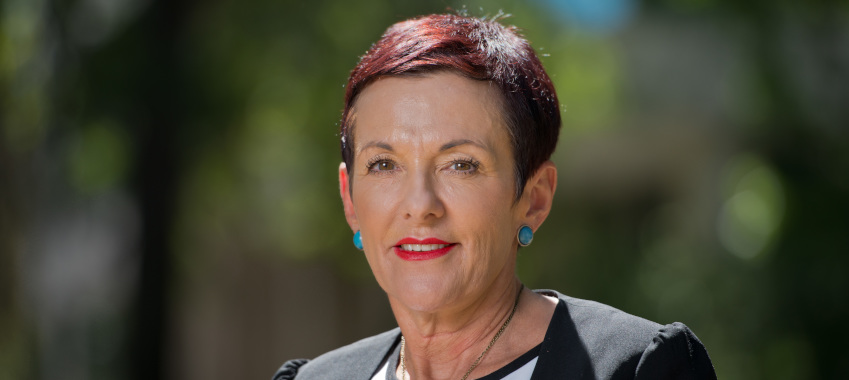
The small business ombudsman is calling for a government-funded revenue-contingent loan for SMEs following poor take-up of the SME Guarantee Scheme.
The Australian Small Business and Family Enterprise Ombudsman (ASBFEO), Kate Carnell, is calling for a new government-funded revenue-contingent loan to be made available to SMEs.
Highlighting a recent Sensis report, which found that more than a quarter of small businesses are having their finance applications “knocked back” by credit providers and 36 per cent are experiencing difficulties obtaining credit, Ms Carnell said that “access to finance is critical to small-business survival, particularly with a number of support measures scheduled to end or begin phasing out in the coming weeks”.
Moreover, the volume of funds being requested by SMEs is said to be falling, with fintech Lend Capital (Lend) recently telling The Adviser that applications and loans funded have dropped dramatically in the last few months. According to the SME finance platform, this is largely due to uncertainty in the current environment caused by ever-changing lender policies and shifting risk appetites.
The Australian government’s Coronavirus SME Guarantee Scheme, which was launched to help support up to $40 billion of lending to SMEs, has also been ineffective in helping providing finance to those in need – with only 15,600 business loans worth $1.5 billion having been issued, according to Treasury figures.
While the scheme will go through a reboot for the second tranche (opening 1 October 2020), several industry commentators have warned that the changes may not go far enough to help those who need it most.
Indeed, ASBFEO Kate Carnell has suggested that small businesses would be more likely to take out a revenue-contingent loan than seek finance under the government’s current guarantee scheme.
As part of the ombudman’s COVID-19 Recovery Plan, Ms Carnell is therefore recommending that a new government-funded product be launched, capped at a percentage of the small business’ annual revenue.
Repayments would be required once turnover reached a designated level and calculated on a percentage of turnover.
Ms Carnell said: “Right now, small businesses are scared to take on any additional debt because they don’t know what’s around the corner and how any possible further lockdowns might impact their capacity to make loan repayments.
“A revenue-contingent loan would operate in a similar way to HECS, with small businesses only required to start repaying once turnover recovered to an agreed level. If revenue was to drop below that level, payments would cease,” she said.
Touching on the Coronavirus SME Guarantee Scheme, Ms Carnell said: “Even with government taking on 50 per cent of the risk under its loan guarantee scheme, loans continue to be subject to bank credit assessment processes, which means small businesses with falling revenue have an uphill battle to secure finance.”
She highlighted, however, that the proposed revenue-contingent loan would require businesses to satisfy a viability test to be conducted by an accredited financial adviser.
“A revenue-contingent loan would give small businesses the confidence they need to seek funding to get them through this crisis, so they can grow and employ,” the small business ombudsman continued.
“Any small business considering taking out a loan should always first speak to their trusted adviser – whether that’s an accredited broker, accountant or bookkeeper.”
As well as recommending a new revenue-contingent loan, the ASBFEO is also urging the federal government to abolish fringe benefits tax (FBT) for at least two years to provide a much-needed cash flow boost to the economy and support struggling small businesses.
In a letter to Treasurer Josh Frydenberg, Ms Carnell argued that this change to the tax system would provide a big boost to small businesses in the industries hardest hit by the COVID crisis.
“Small businesses are unfairly impacted by the fringe benefits tax,” Ms Carnell said.
“As it stands, small businesses are required to pay FBT on items that large businesses often provide in-house to retain staff such as meals, gyms and childcare centres.
“Larger businesses can actually claim some services as business expenses, without paying FBT.
“But small businesses that provide the same benefits to their teams offsite have to pay FBT. At the same time, high rates of FBT acts as a disincentive to businesses spending with small businesses, particularly those in the hospitality and tourism sectors, which are hurting the most right now,” she said
“A weekend away, lunch at a restaurant or a team bonding game of golf, all attract FBT.”
She cited modeling undertaken by EY on behalf of Tourism Accommodation Australia and the Australian Hotels Association, which indicated that suspending FBT on accommodation, meals and beverages alone would produce economic returns of up to 3.8 times the direct cost to government.
Ms Carnell concluded: “FBT is discouraging businesses from spending with small businesses, which reduces the amount of money flowing into the economy.
“Fringe benefits tax accounted for less than 1 per cent of government revenue in 2019-2020 and that figure is likely to be even less in the current financial year due to the economic downturn.
“Abolishing the FBT would cost no more than $4 billion a year to the government, but it would be an effective support measure for small businesses and also stimulate cash flow into the economy at a time when we need it most.”
[Related: SME Guarantee Scheme shortcomings lamented]
